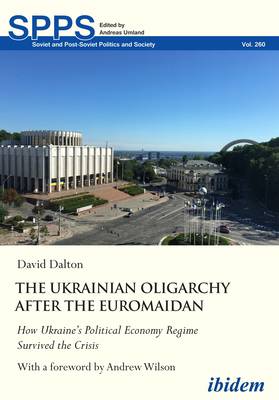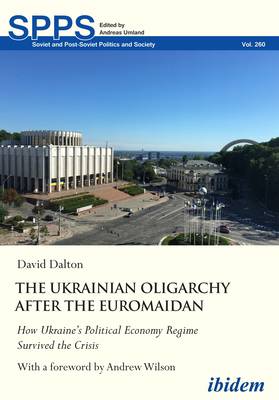
- Afhalen na 1 uur in een winkel met voorraad
- Gratis thuislevering in België vanaf € 30
- Ruim aanbod met 7 miljoen producten
- Afhalen na 1 uur in een winkel met voorraad
- Gratis thuislevering in België vanaf € 30
- Ruim aanbod met 7 miljoen producten
Zoeken
The Ukrainian Oligarchy After the Euromaidan
How Ukraine's Political Economy Regime Survived the Crisis
David Dalton
€ 36,95
+ 73 punten
Omschrijving
How did the Ukrainian oligarchy survive the institutional disruption of the Euromaidan revolt of 2013/2014? How did it manage to continue its extractive political and economic practices, amid deep changes in Ukraine's society and polity? To answer these questions, this book analyzes the evolution of the Ukrainian super-rich in 2006-2017, tracing the process of conversion of wealth into political influence through vote-buying in the Verkhovna Rada (the Ukrainian parliament) and of the transformation of political influence back into wealth via elite rent-extraction schemes within the Ukrainian gas sector. A key argument is that continuity in informal practices between the Yanukovych and Poroshenko presidencies, and of the networks that conduct them, meant a prolongation of the dominant political economy regime. The study conceptualizes the processes of the recreation of Ukrainian oligarchy as a "currency flow," or circuit, of wealth and power. It adds to the literature on the dynamics of informally dominated post-communist political economy regimes a detailed, integrated, and internally comparative case study of Ukraine.
Specificaties
Betrokkenen
- Auteur(s):
- Uitgeverij:
Inhoud
- Aantal bladzijden:
- 314
- Taal:
- Engels
- Reeks:
- Reeksnummer:
- nr. 260
Eigenschappen
- Productcode (EAN):
- 9783838217406
- Verschijningsdatum:
- 21/03/2023
- Uitvoering:
- Paperback
- Formaat:
- Trade paperback (VS)
- Afmetingen:
- 147 mm x 208 mm
- Gewicht:
- 385 g

Alleen bij Standaard Boekhandel
+ 73 punten op je klantenkaart van Standaard Boekhandel
Beoordelingen
We publiceren alleen reviews die voldoen aan de voorwaarden voor reviews. Bekijk onze voorwaarden voor reviews.











